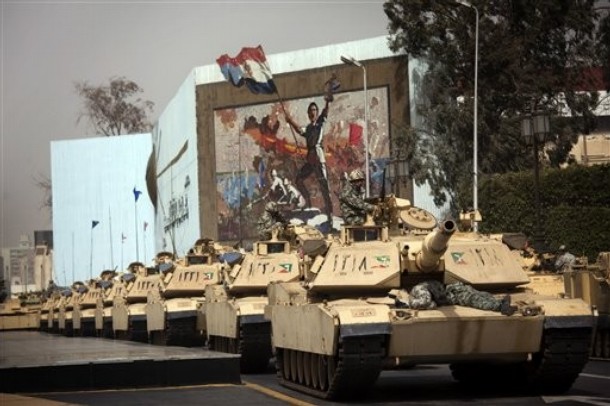
For very different reasons, extraordinary events in Egypt and Pakistan could dramatically redefine global politics. The unanswerable first question is whether any such tectonic change, if it occurs, will be for good or for ill? A more nagging concern is given the excitement, outrage and expectations generated by these very different events, are the effects being exaggerated? Last, is time friend or foe in affecting any resolution?
In Egypt, huge public demonstrations ended the nearly 30 year rule of Hosni Mubarak. But what has changed beyond the dramatic resolve and courage displayed by many Egyptians? An 82 year old ex Air Force general has been replaced by a 75 year old former infantry officer turned Field Marshall—Mohammed Tantawi and a ruling defense council that declared martial law, disbanded Parliament, suspended the constitution and promised free and fair elections. To the untrained eye, is this not some form of a popularly inspired coup?
Clearly, the senior Egyptian army leadership is not anxious to run a nation with the absence of timely solutions to the economic and political crises it confronts. The government has been more or less left in place. Free and fair elections have been promised assuming a political infrastructure can be put in place over six months to include organizing political parties and identifying qualified candidates for elective office.
Yet, the public mood for more change and for speedy redress to its grievances now that Mubarak is gone cannot be understated. Unfortunately, rectifying decades of rot will take time. And time may be the one factor that any Egyptian government—-army or civilian—does not have.
About Pakistan and the United States, both strategic partners are at daggers drawn over Raymond Davis, the American accused by the Lahore police of murdering two Pakistanis in broad daylight. The U.S. insists that Davis has and had diplomatic immunity. The Pakistanis disagree. And the statement by former Foreign Minister Shah Mahmoud Qureshi immediately after he was dropped from the cabinet that the Foreign Office concluded Davis did not have immunity was, at the least, unhelpful.
High level contacts including the Trilateral Meeting in Washington scheduled for later this month with Afghanistan and Pakistan and Pakistani President Asif Zardari’s state visit have been suspended. With the Egyptian crisis less visible at the moment, the U.S. Congress will turn its attention to Pakistan. And, most likely, cooler heads will not prevail as the “free Davis now” movement grows. All of this suggests retaliation that will do long-term and possibly irreversible damage to both sides including making the job in Afghanistan tougher.
Can anything be done to channel the optimism triggered by the Egyptian protests into achieving a more open and more democratic society and to quench what could become an uncontrolled political firestorm in Pakistan over Mr. Davis’ fate? This is where creativity and innovation are vital.
Only Egyptians can and will determine their future. One step the international community should take is to create a reservoir of capable people and resources to assist Egypt with advice and funding Egyptians need and request. Such an organization can be formed under the auspices of the UN or EU and offered to a parallel organization set up and run by Egypt with Egyptian members who are persons of letters, integrity, experience and ability.
The example to avoid was the liberation of Eastern Europe post Soviet Union (or after the 2003 invasion of Iraq) when thousands of outside and often unqualified “experts” and consultants raced to fill the void with particular theologies or theories not based on the actual needs of the resident populations. Hence, as the Egyptian army and government closely examine the economic, political and structural landscape of Egypt, specific assistance under Egyptian leadership from building political parties and voting procedures to repairing the economy, education and social needs can follow.
For Pakistan, the first step must be assembling without bias or opinion, the arguments of both sides regarding diplomatic immunity. So far, the U.S. has been inflexible in its assertion of immunity. But, surely, given the flurry of contradictory reports that cloud this issue, mistakes were made by both countries. Comparing records and identifying errors and differences, if carefully done, can lead to satisfactory closure as it appears that at some point Davis had immunity. And transferring Davis to a fully secure location under “joint” Pakistani and U.S. custody will suggest movement and create a little breathing room in Washington.
In Egypt, we are seeing what Churchill called the “end of the beginning,” not the converse. Time can be a friend or a foe. The jury is out.
In Pakistan, time is not a friend. This situation must be resolved within days or a few weeks at most if the strategic relationship is to survive.
Harlan Ullman, an Atlantic Council senior advisor, is chairman of the Killowen Group that advises leaders of government and business. AP Photo.
Image: egypt-protest-tanks.jpg
